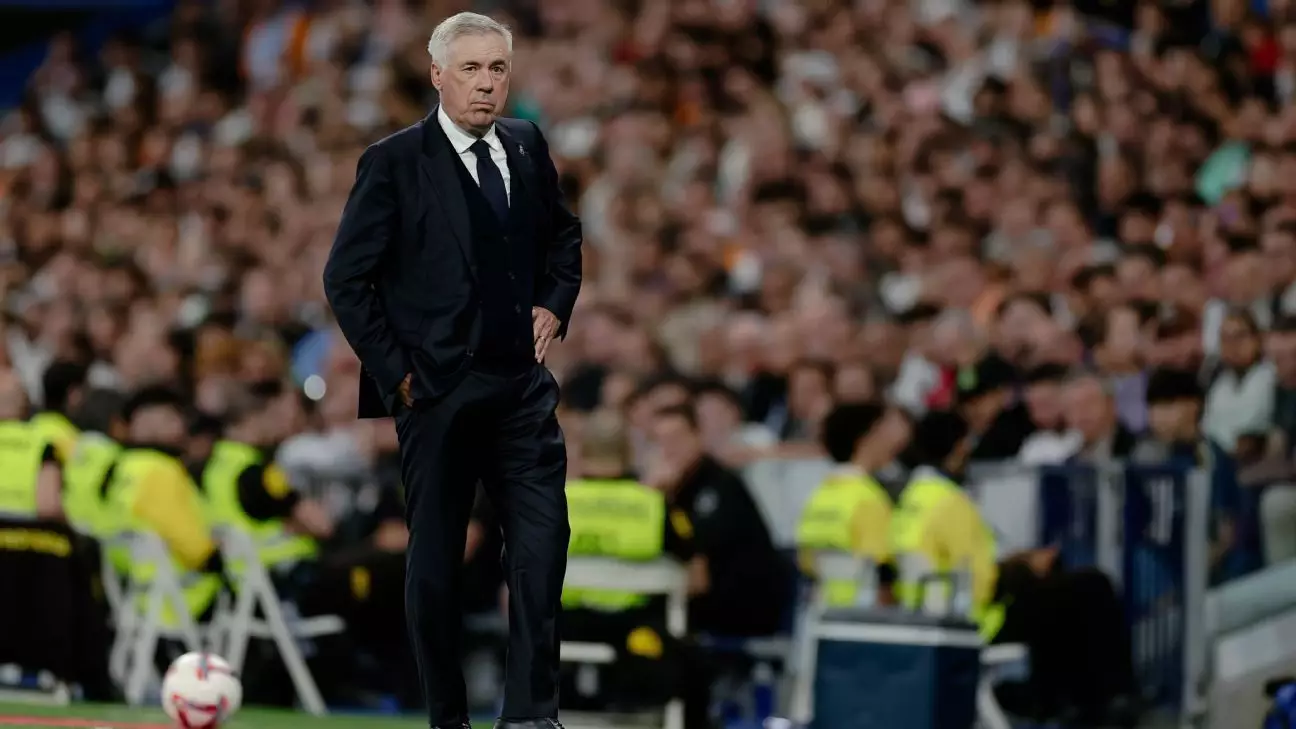The recent flash floods in Valencia, which have tragically claimed the lives of at least 217 individuals, have not only devastated the local community but have also raised profound ethical questions about the role of professional sports during national crises. Real Madrid’s head coach, Carlo Ancelotti, articulated the sentiment felt by many when he suggested that all football activity in Spain should have been suspended in the wake of this calamity. While the postponement of several matches demonstrated an acknowledgment of the gravity of the situation, the continuation of others ignited debates about the appropriateness of sporting events amidst suffering.
LaLiga’s Response to the Catastrophe
In an impressive display of solidarity, LaLiga has partnered with organizations like the Red Cross to facilitate fundraising efforts for those affected by the floods. The destruction of homes and public infrastructure has resulted in widespread hardship, indicating that the tragedy is not merely a local issue but one that resonates nationwide. Ancelotti emphasized the collective grief, noting, “We’re very close to Valencia and all the affected towns.” His comments underscore how intertwined football is with the broader fabric of society.
While financial assistance is critical, questions remain about the moral compass guiding sports executives and organizations in times of crisis. Can football truly be a celebration if its players and fans are mourning personal losses? Should sports be viewed as an essential public good, or do they take on a frivolous character during moments of national grief?
The philosophical debate surrounding professional football during a national tragedy isn’t isolated to Ancelotti. Atlético Madrid’s coach, Diego Simeone, echoed similar sentiments, arguing that the decision to proceed with matches made little sense under the circumstances. Such statements indicate a growing consensus among coaches and players about the dissonance between their professional commitments and the realities of their personal lives and communities.
Furthermore, full-back Lucas Vázquez succinctly voiced the frustration many feel, remarking on the limited influence coaches and players have on decision-making when it comes to scheduling games. “The coach is absolutely right,” he reaffirmed, highlighting the broader implications of authority in sports. This stipulates a hierarchical structure where sentiments of the players and coaches fall to the wayside when financial interests and broadcast schedules come into play.
The ongoing preparations for upcoming matches, including Real Madrid’s fixture against AC Milan in the UEFA Champions League, reveal a stark contrast to the prevailing atmosphere of grief. Ancelotti’s comments about the difficulty of maintaining focus are telling: “Your head isn’t in your work.” It is not just the players’ physical readiness that must be examined, but also their emotional well-being.
Players must simultaneously navigate their professional obligation and their personal feelings regarding the tragedy. This multifaceted struggle amplifies the need for leagues and clubs to place individual well-being above commercial interests, especially in challenging times.
As the sporting world moves forward, the cries for compassion and sensitivity resonate strongly. Matches are often seen as integral to cultural identity, yet football also exists within the context of human experiences, joys, and sorrows. The comments from Ancelotti and his peers prompt a reevaluation of priorities: can we engage in celebrations when fellow citizens are grappling with monumental loss?
The events surrounding the floods have served as a reminder that, while football holds a significant place in society, it must also acknowledge the periods of mourning and despair. Now, more than ever, a thoughtful discourse needs to ensue within the footballing community about its responsibilities in times of crisis—ensuring that humanity remains at the forefront of the beautiful game.


Leave a Reply